
Explore the key factors that impact vinyl fence installation costs in Columbus, OH, including labor, materials, permits, layout, design, and yard conditions.
Protect your paradise all year long


Nothing beats that first cannonball into a pool on a scorching hot day, and if you’re fortunate enough to have a pool in your backyard, you have unlimited access to that refreshing water all summer long. But while swimming pools have their perks, the reality of owning a pool is that safety takes priority over all else. Whether you’re considering having a pool installed or you already own one, deciding what type of pool fence to put up is an important choice.
Safety is the number one factor, but there are other considerations involved, such as which types of fences will obstruct your poolside view, which will allow for sunlight to shine through onto the water, and so on. Luckily, there are plenty of pool fence ideas to choose from to make your backyard paradise both stunning and safe.
The word fence is often synonymous with wood, and there are many variations of wooden fences to choose from to both protect, and elevate, the area surrounding your swimming pool.

A classic wooden fence can be the ideal option for maximum privacy, particularly if you opt for one that’s on the taller side. While there are a variety of wooden fence designs to choose from, a tall fence with limited space between the planks will better protect against unwanted animals or visitors.
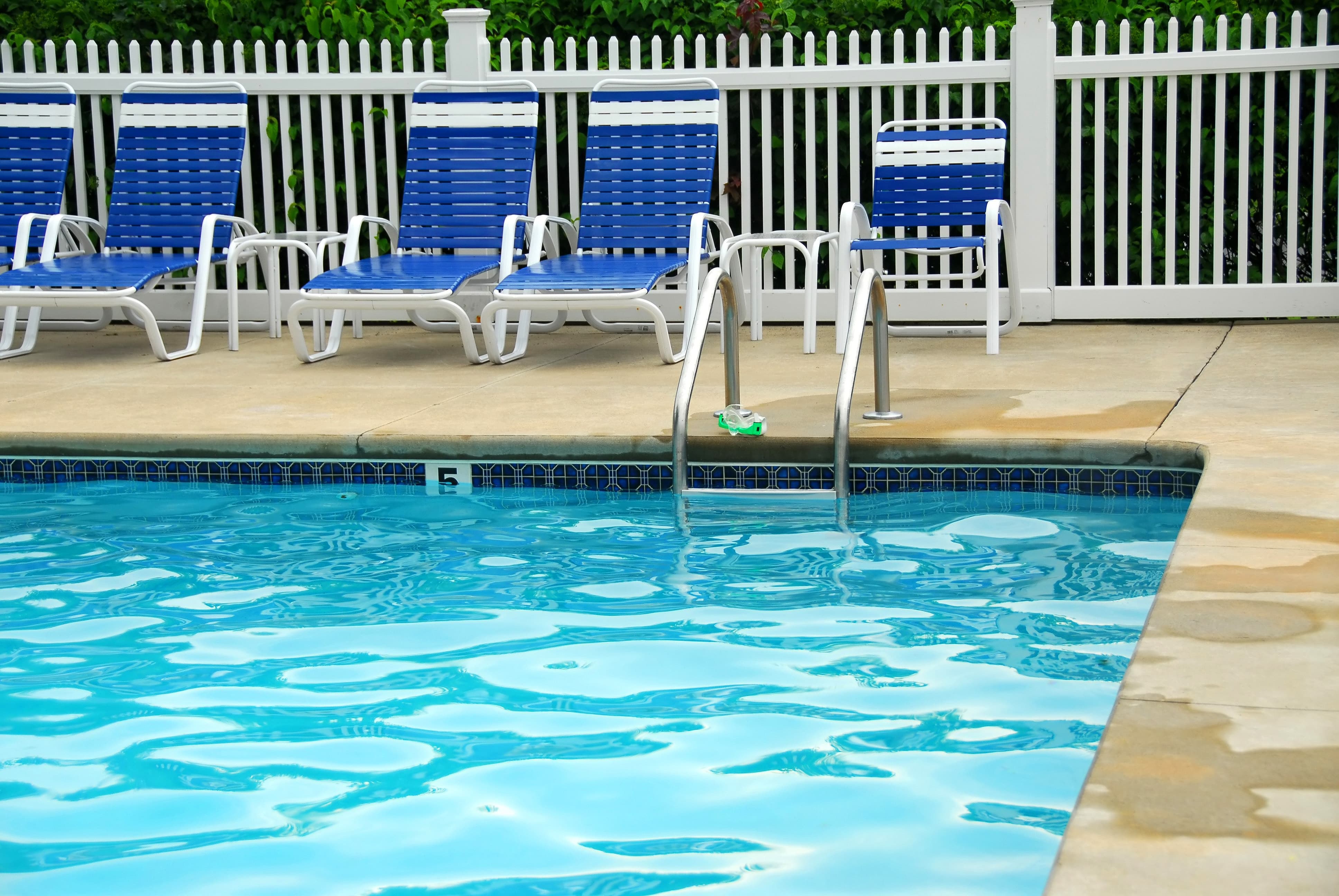
Who said picket fences are exclusive to front yards? Installing a white picket fence around the area of your pool can give off a small-town charm while offering a barrier for safety.
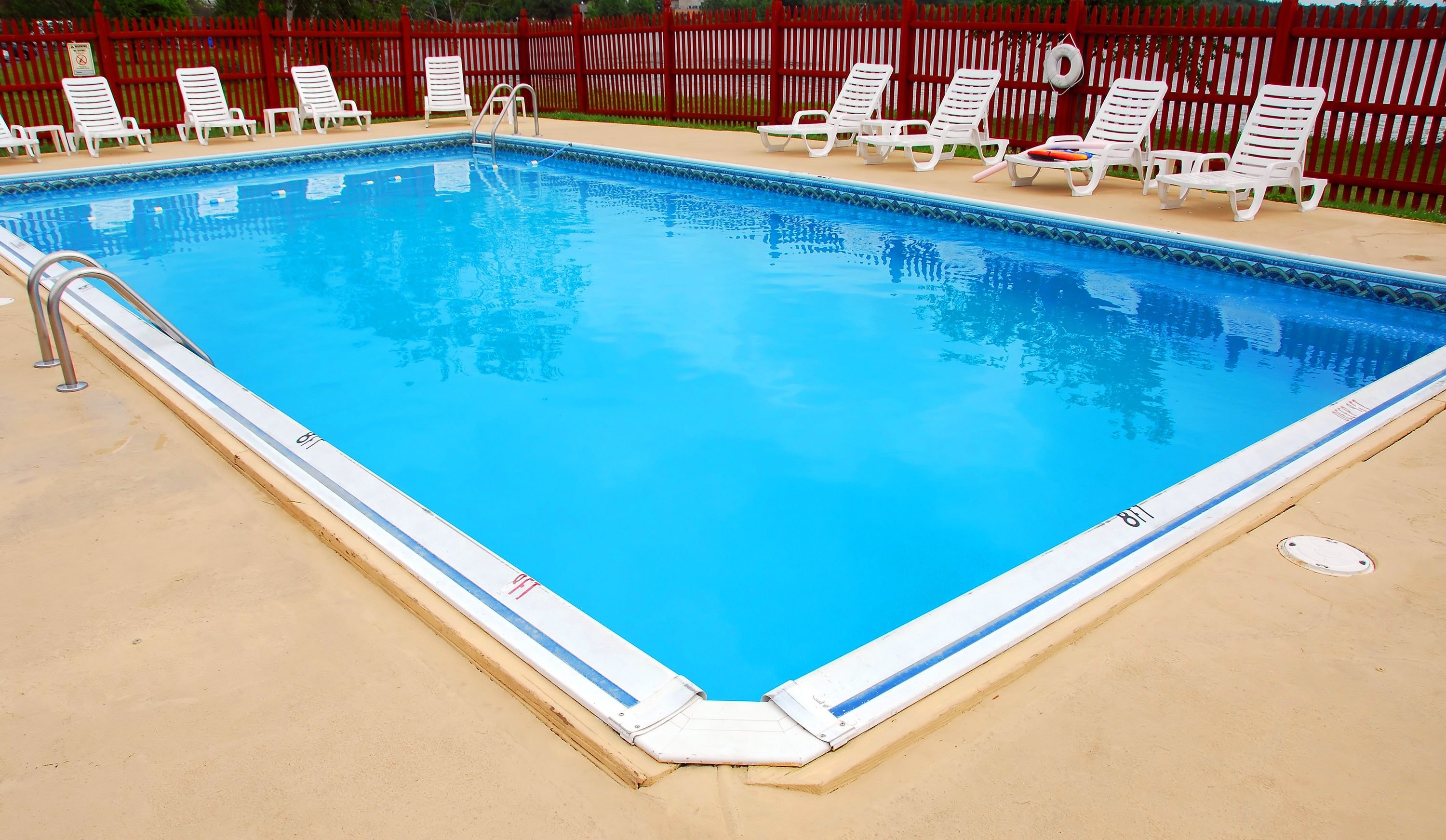
Typically, when wooden fences are painted, it’s to turn them from their natural color to a bright white—but why not showcase your artistic side? Install a funky-colored wooden fence around your pool to keep the vibes playful and fun.
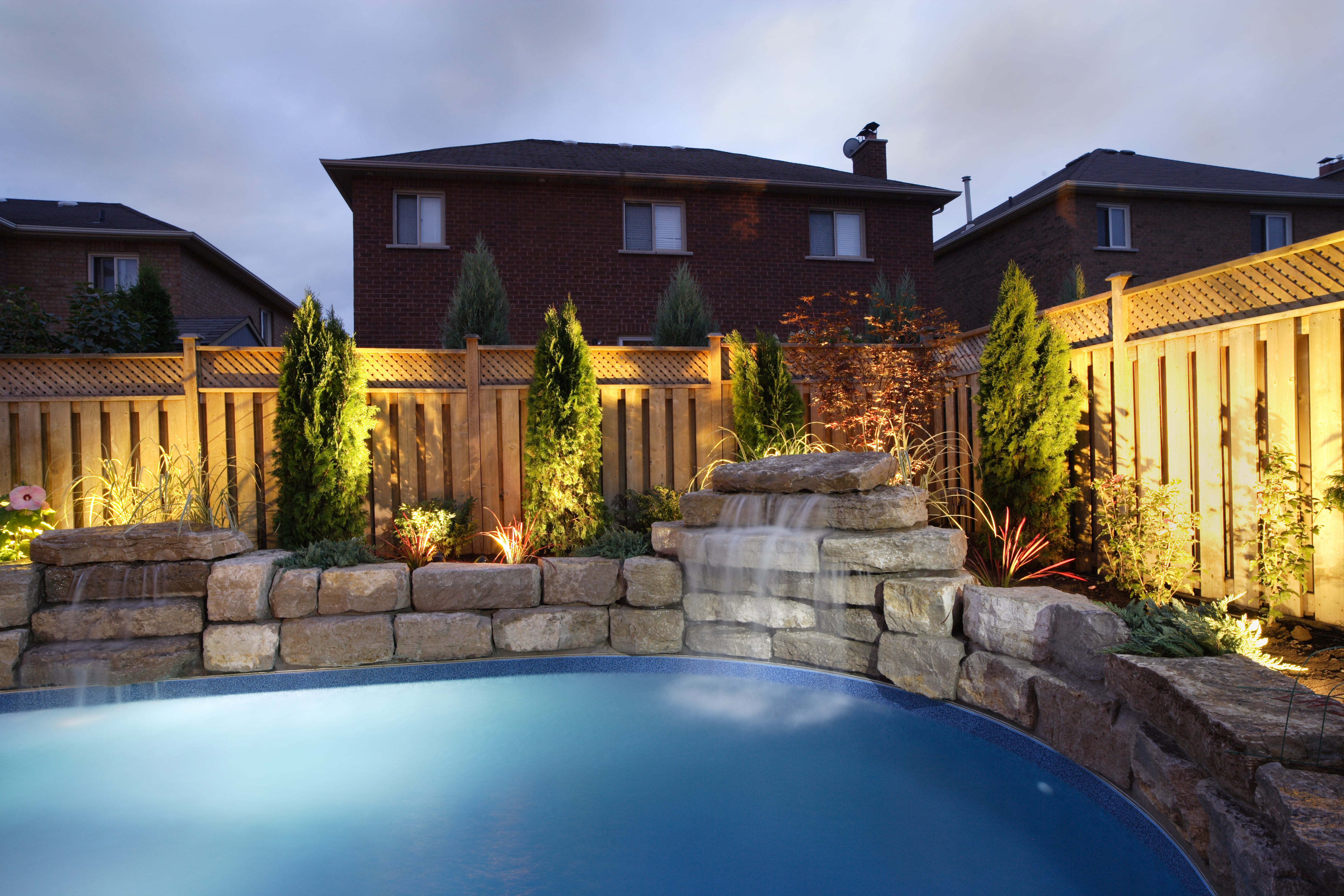
If you’re sold on a wooden fence but don’t want the run-of-the-mill vertical look, consider installing a wooden fence with a lattice design on top. Not only will the lattice add a sophisticated element to the fence, but it will also allow for the wind to flow through it, making for a welcome breeze on a hot day.
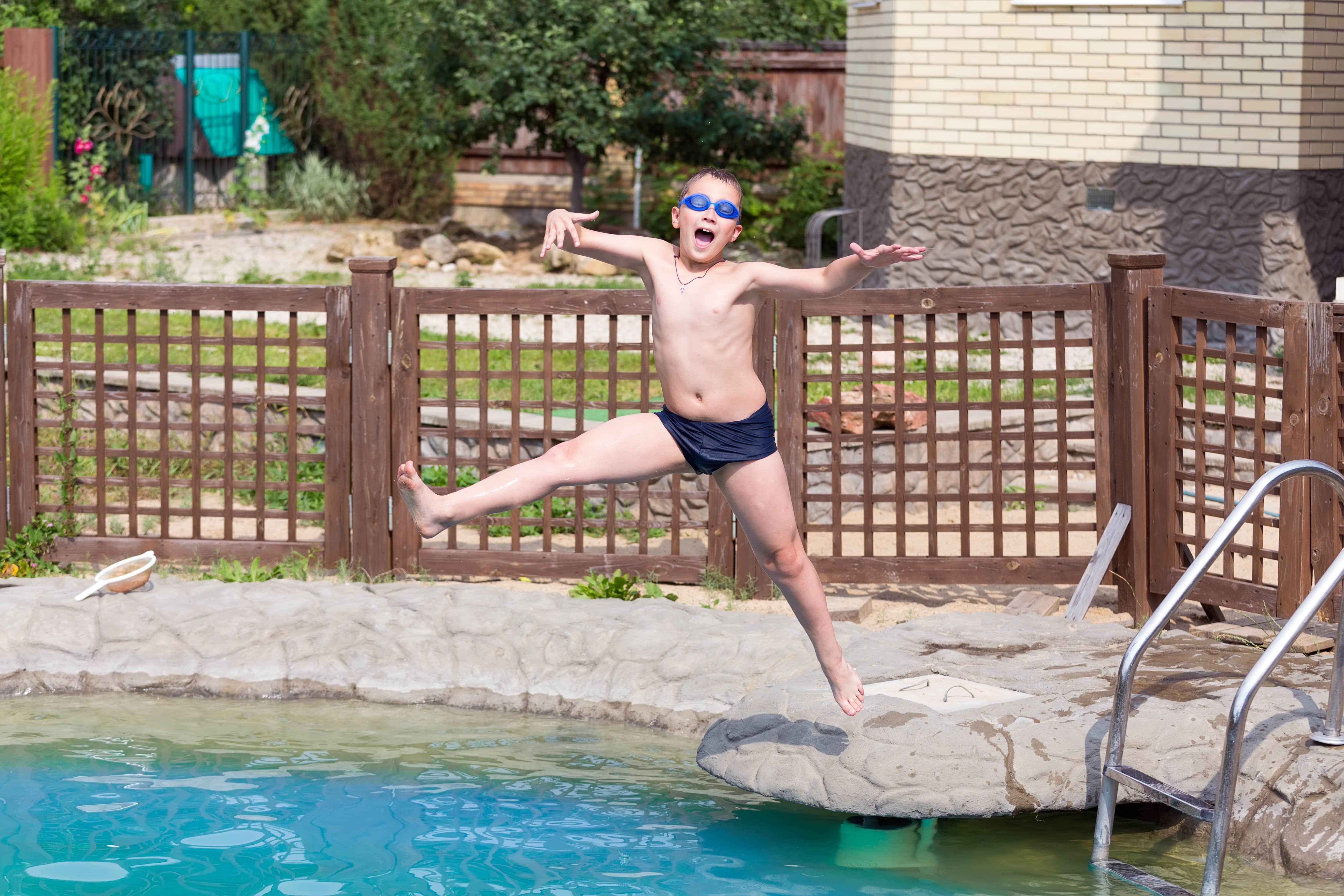
If a breeze is what you’re after, don’t stop at the top of the fence. Installing a checkerboard fence will not only provide a better view of your pool but also optimal airflow. This style of pool fence also happens to look fabulous around the pools of country-style homes.
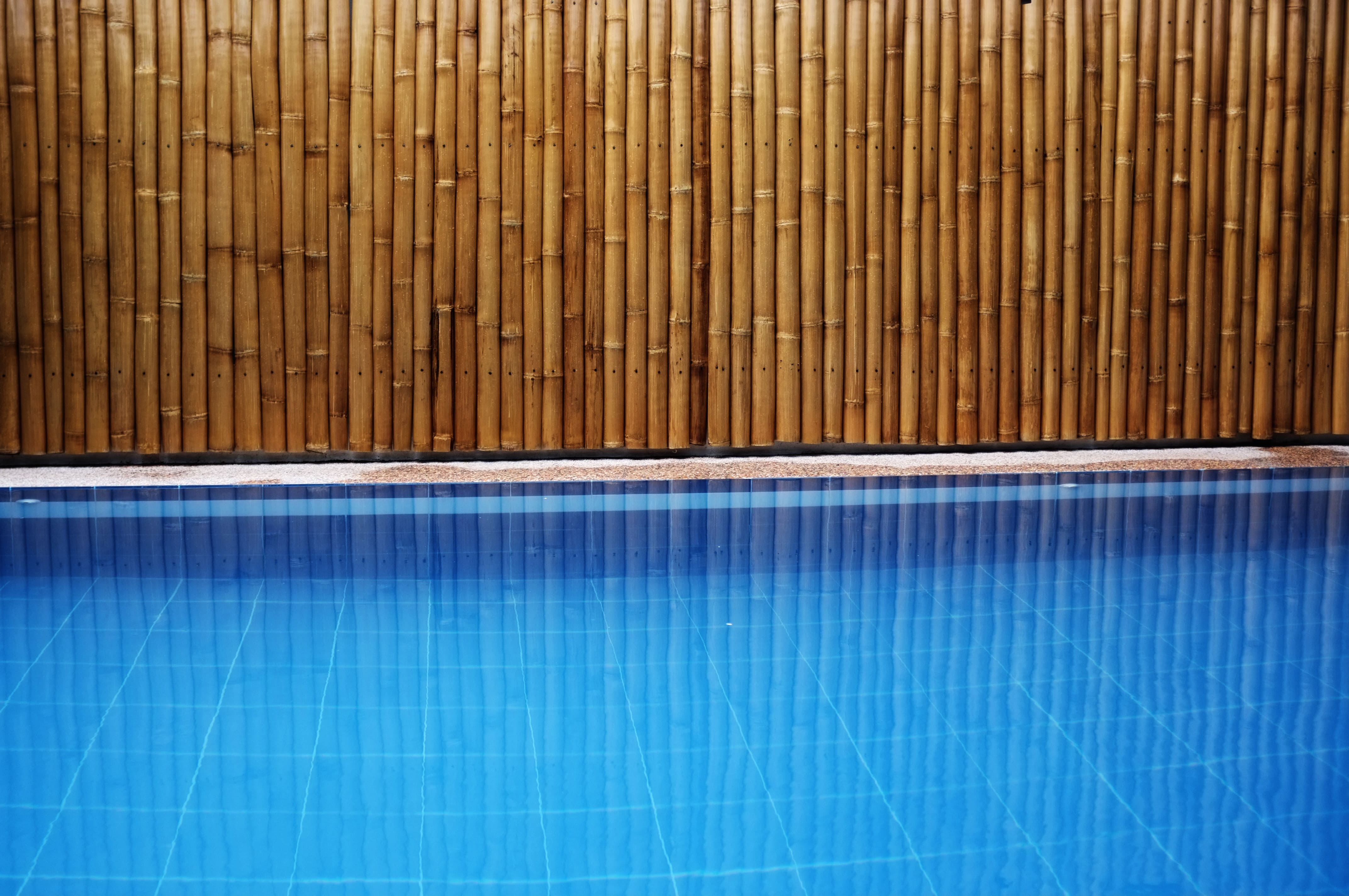
Why pay thousands for a vacation when you can achieve your island getaway dreams in your own backyard? A bamboo fence isn’t just a barrier—it’s an entirely tropical aesthetic. Make your pool fence part of the overall look by building it out of bamboo and watch as your suburban backyard is transformed into a luau.
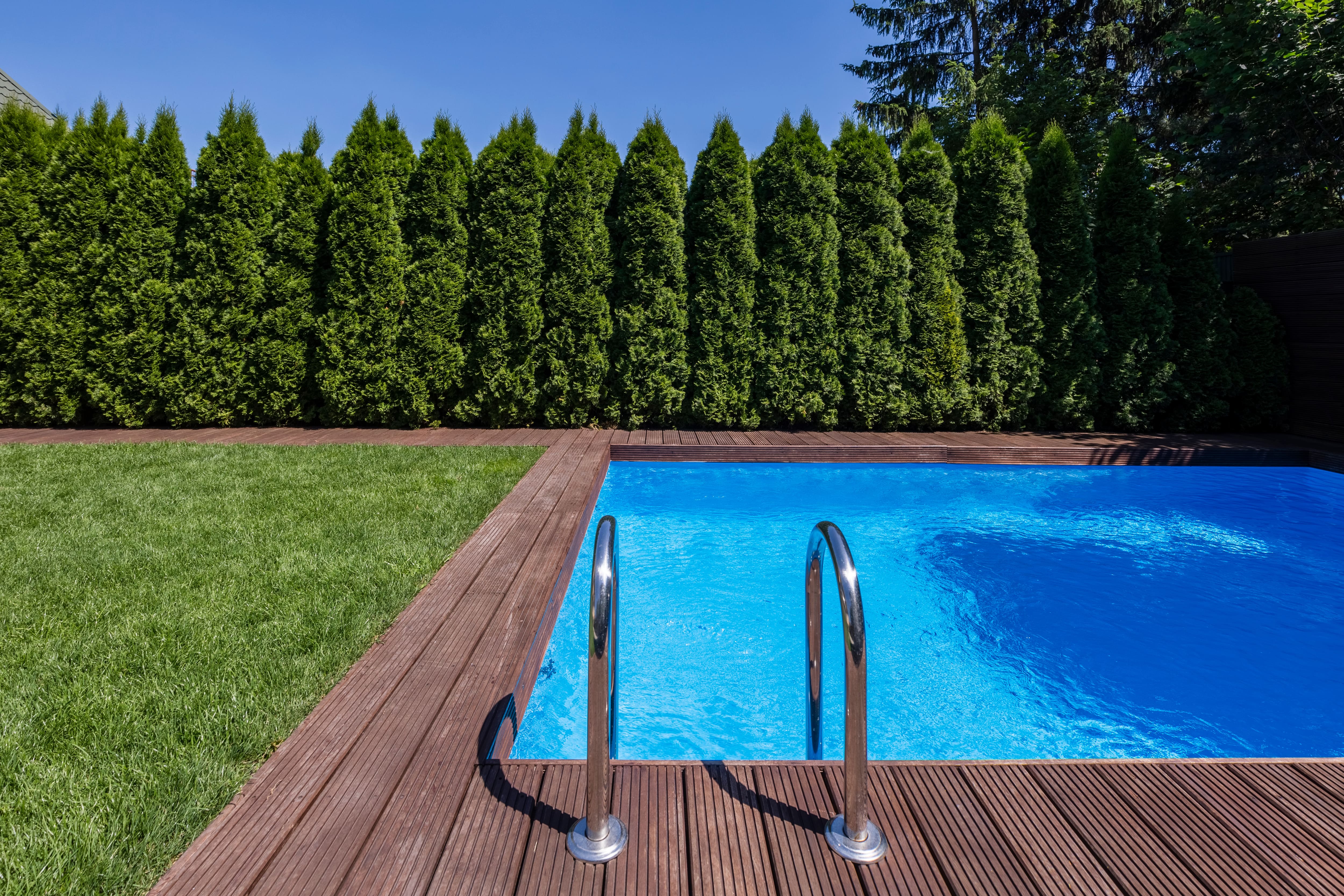
If you’re seeking an alternative form of a wood fence, why not opt for the most natural wooden material of them all—a tree barrier. Planting the trees yourself won’t result in a fence quickly, so if you have a pool already and need a fence pronto, a tree barrier likely isn’t the best option for you. If you already have a tree-lined backyard and are planning on installing a pool, another consideration to keep in mind is that the tree barrier may not sufficiently meet the requirements needed in your area for pool fences, so be sure to research your local and state laws surrounding pools before getting started.
If safety is the name of the game for you when it comes to your pool, these solid fence options could be right up your alley.

There are different ways to play around with a concrete wall, such as color and height. Installing a concrete half wall around the area of your pool will ensure safety for years to come, as the concrete material is durable enough to withstand time and weather. It will also provide an unobstructed view of the area, and if the concrete look doesn’t appeal to you as is, you can paint it or add decorative tiles to spruce up the appearance.
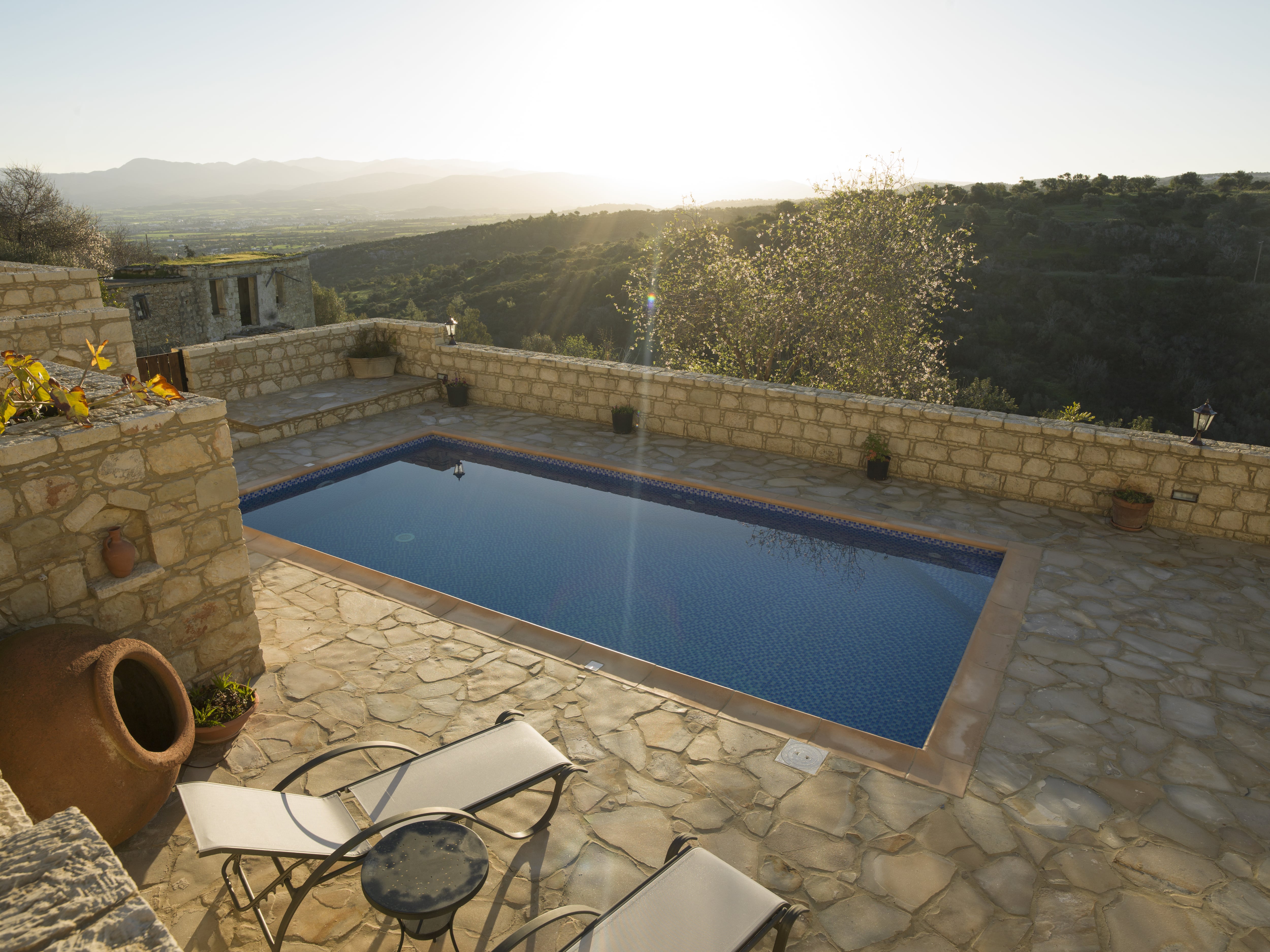
Stone is an easy choice if you’re looking for a strong material that won’t need replacing anytime soon after installation. If you want your backyard pool area to look more rustic than tropical, a stone fence could be the solution you need. Whether you leave it as a half wall or build it up and install a waterfall to flow over it, a stone fence is a beautiful addition to a backyard paradise.
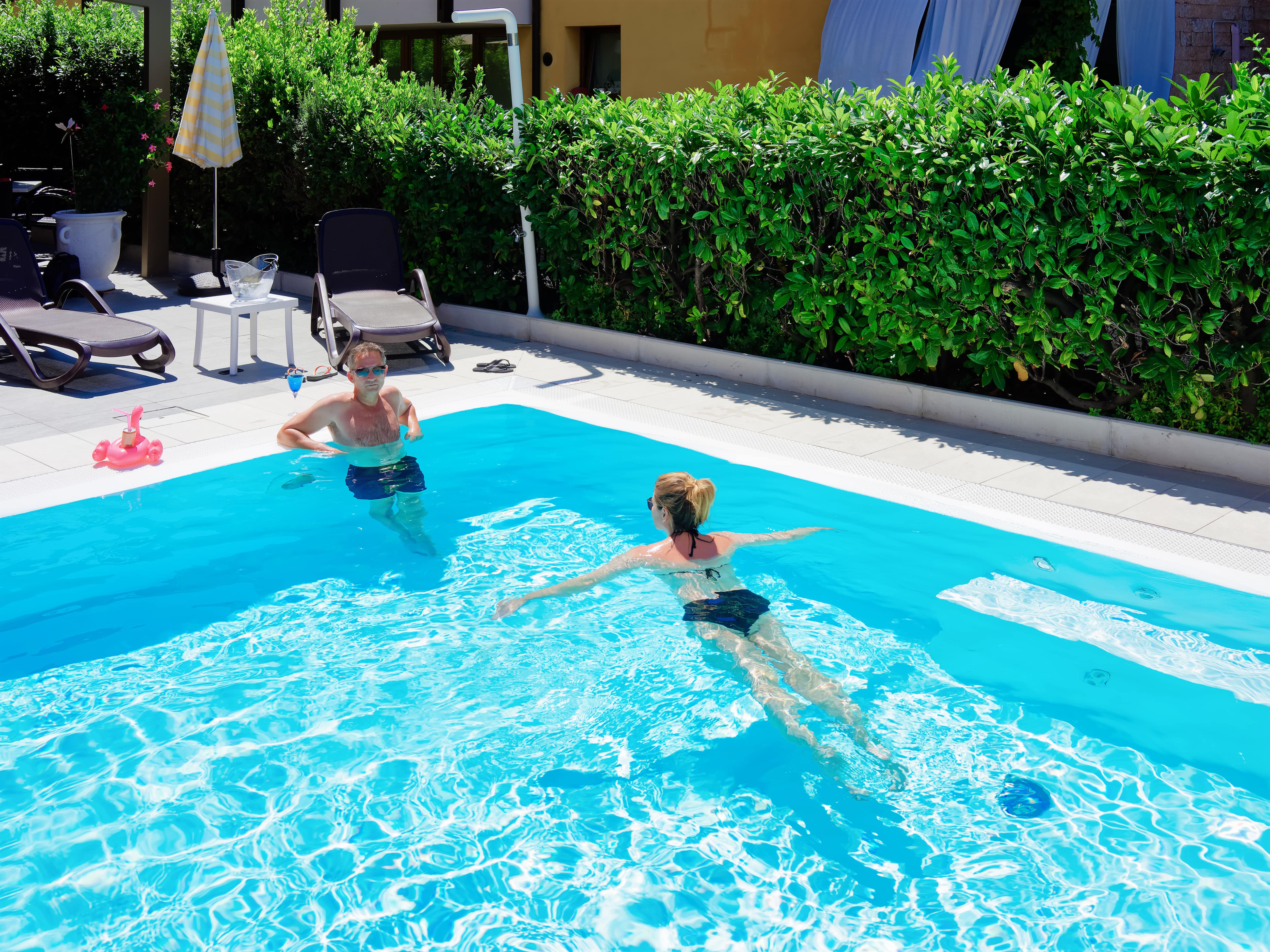
If you already have hedges that need trimming in your yard, use them to your advantage. Get creative with the shapes and length of your hedge fence to achieve a nature-inspired backyard oasis. Be sure to look into the pool fence laws in your region to make certain that a hedge fence meets the proper specifications for pool fence heights before committing to the look.
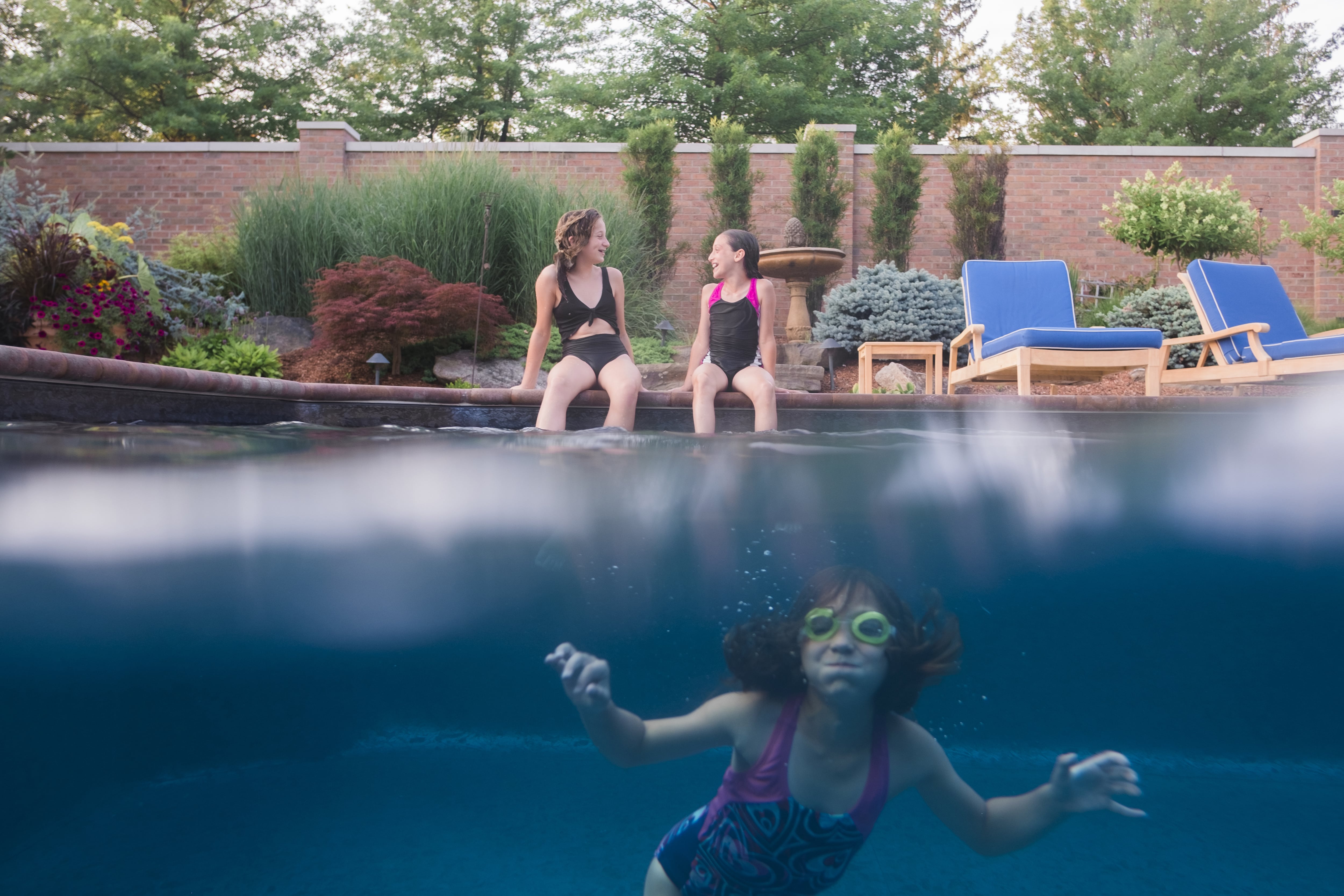
A brick fence is another great fence option if you’re hoping for longevity. Plus, if your house is already built of brick, adding a fence of the same material will go seamlessly with the rest of the aesthetic. Whether it’s a half or full wall, a brick fence adds an air of regality around the poolside.
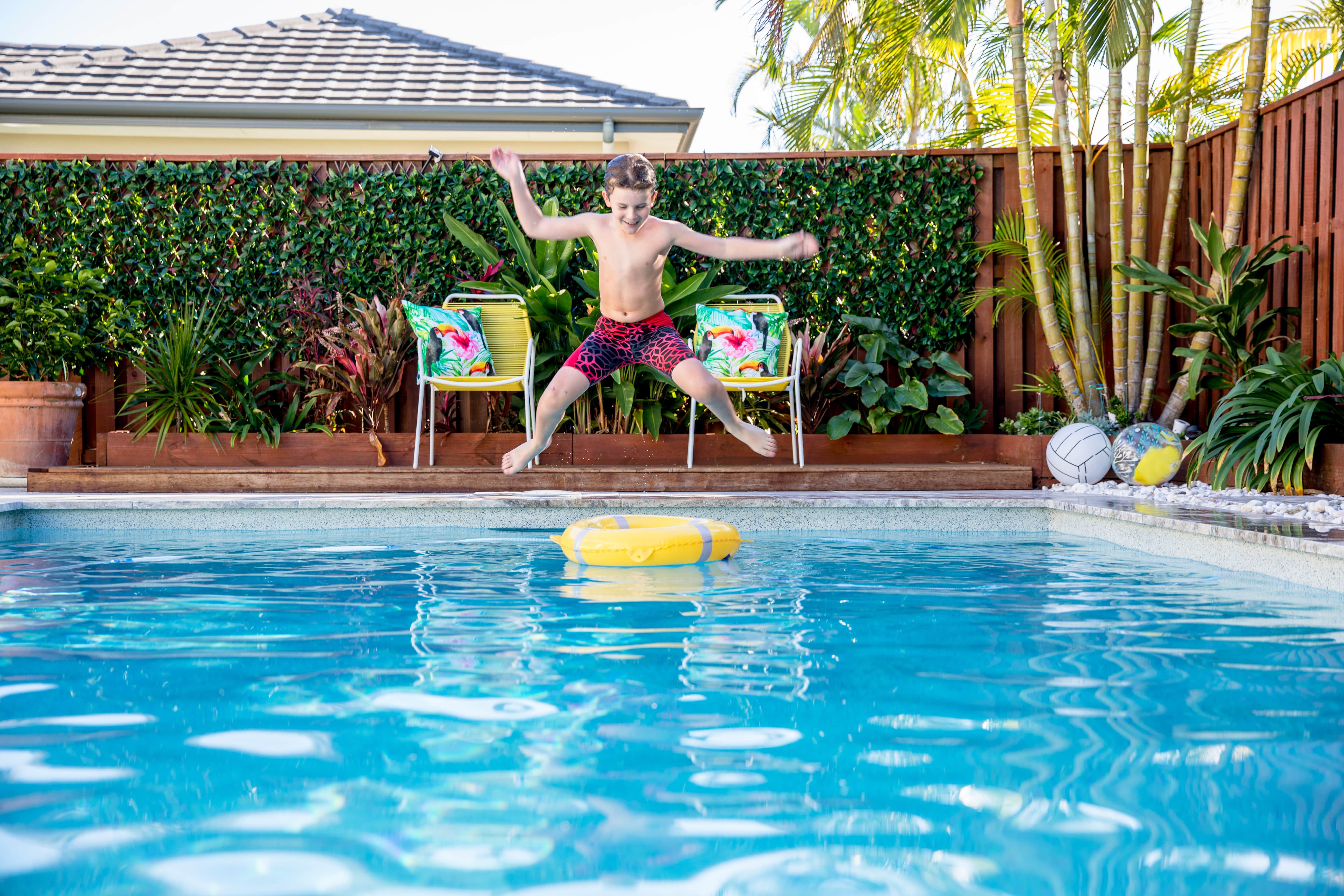
No need to choose between a garden or a fence, combine them to get the best of both worlds. Be strategic in your placement of either a new fence or plants by installing or placing one in front of the other. Over time, the plants you grow can start to climb up the wall that the fence provides, resulting in a protective barrier covered in luscious greenery.
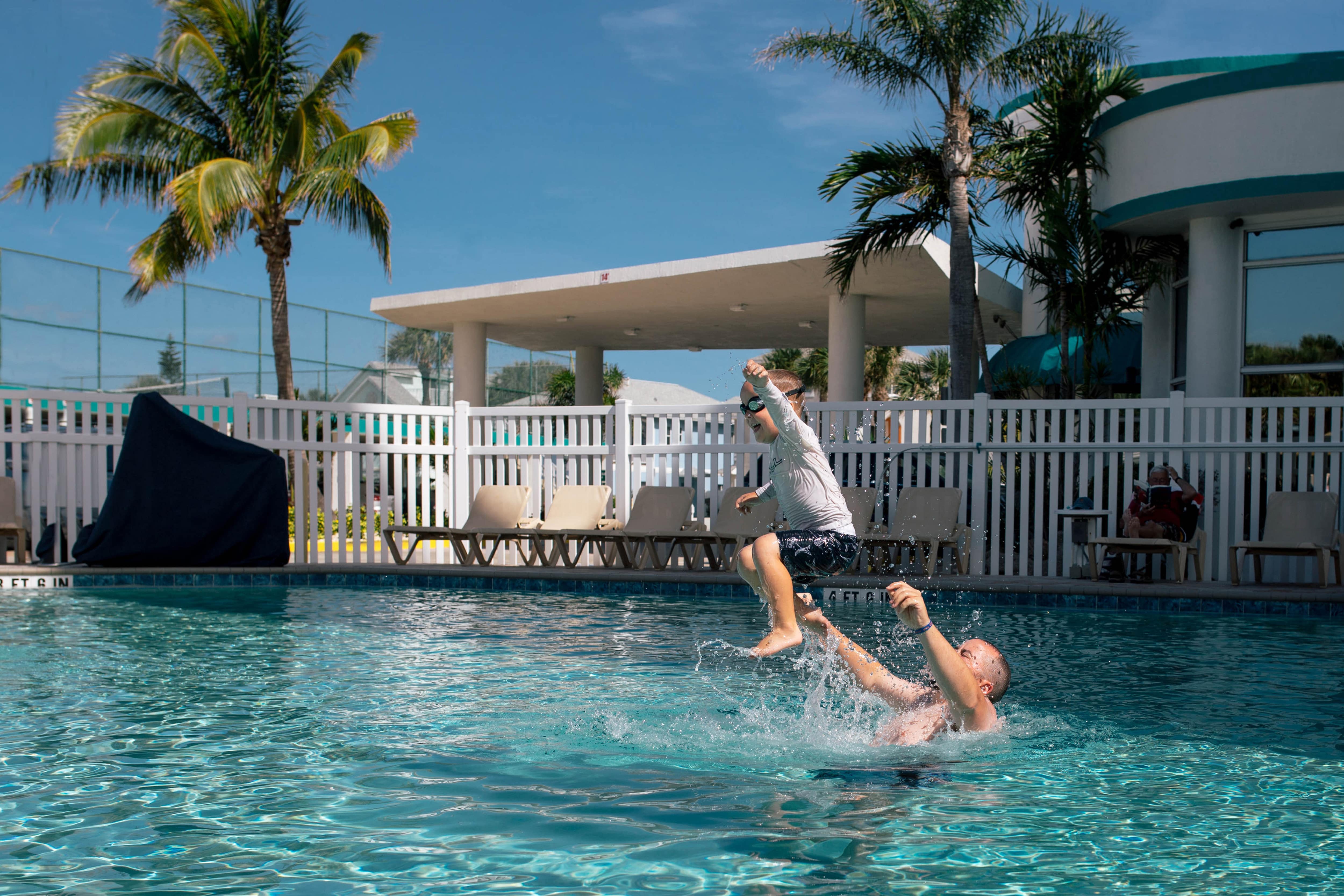
Vinyl fences are a popular choice because of the ability to customize the design of them. These fences offer a light, clean look to a pool landscape, and pair nicely with any color of pool lining and lounge chairs along the patio.
Getting a fence around your pool doesn’t mean you have to say goodbye to the view of it. There are a multitude of fence options that will allow you to protect your pool area and still be able to enjoy gazing at it.

The top contender for fences that provide an element of safety while still allowing for an unobstructed view is the glass fence. This type of fencing can offer a sleek, modern design to the overall aesthetic of your patio and home. There are downfalls to this type of fence, however, including price and a lack of privacy. Depending on where you live and how close your neighbors are, curious onlookers may be able to see your pool as well as you can, which could be a deal-breaker for some.
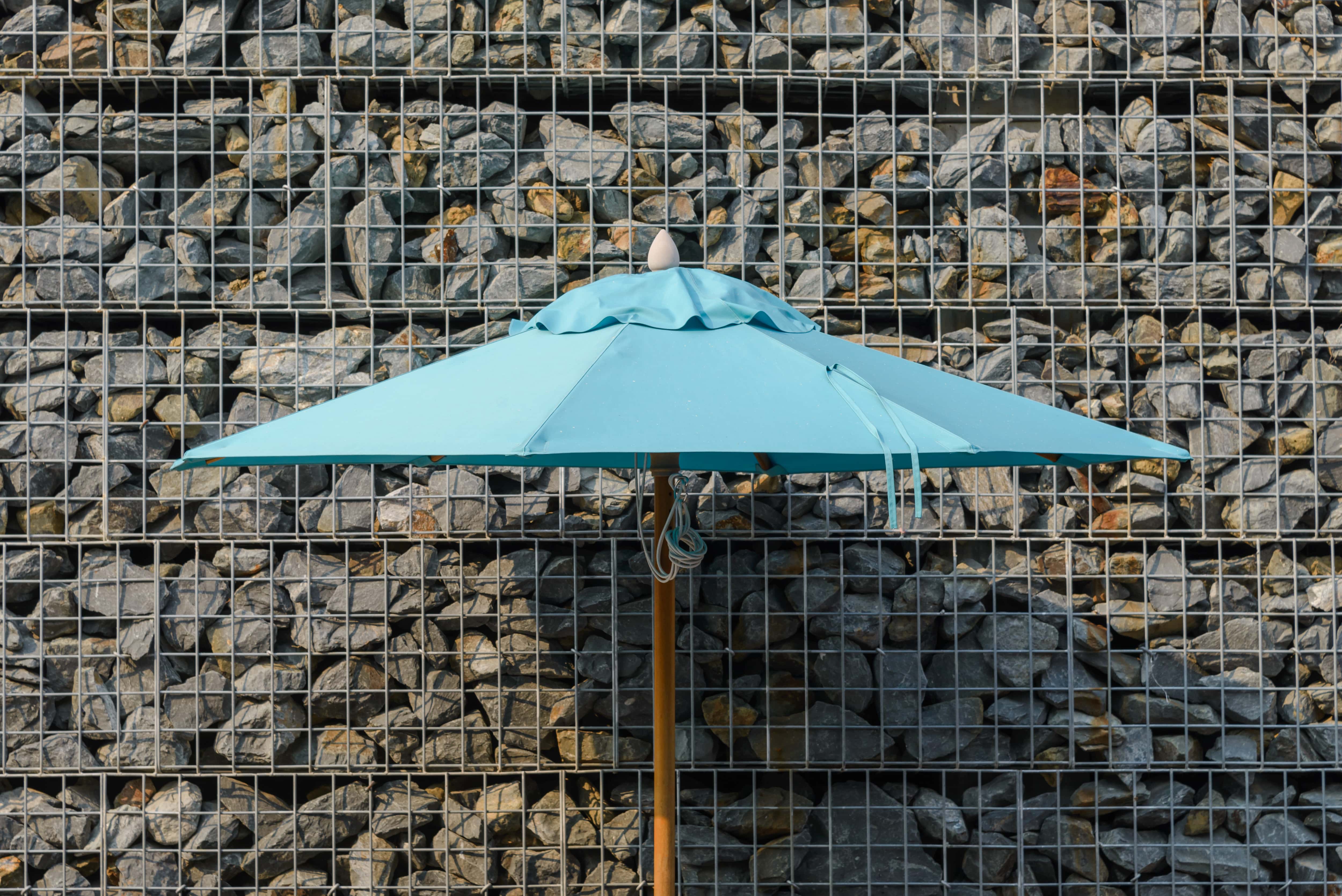
A gabion wall may seem like an unusual pool fence choice, but if you want an undeniably strong retaining wall, it’s worth considering. Gabion walls offer the rustic stone look while ensuring that the stones stay in place behind the metal wire netting they’re enclosed within. Gabion walls aren’t meant for every backyard and are better suited for homes with steep drops leading down to a lower pool area. Installing a gabion wall fence will help protect your pool from the landscaping above.
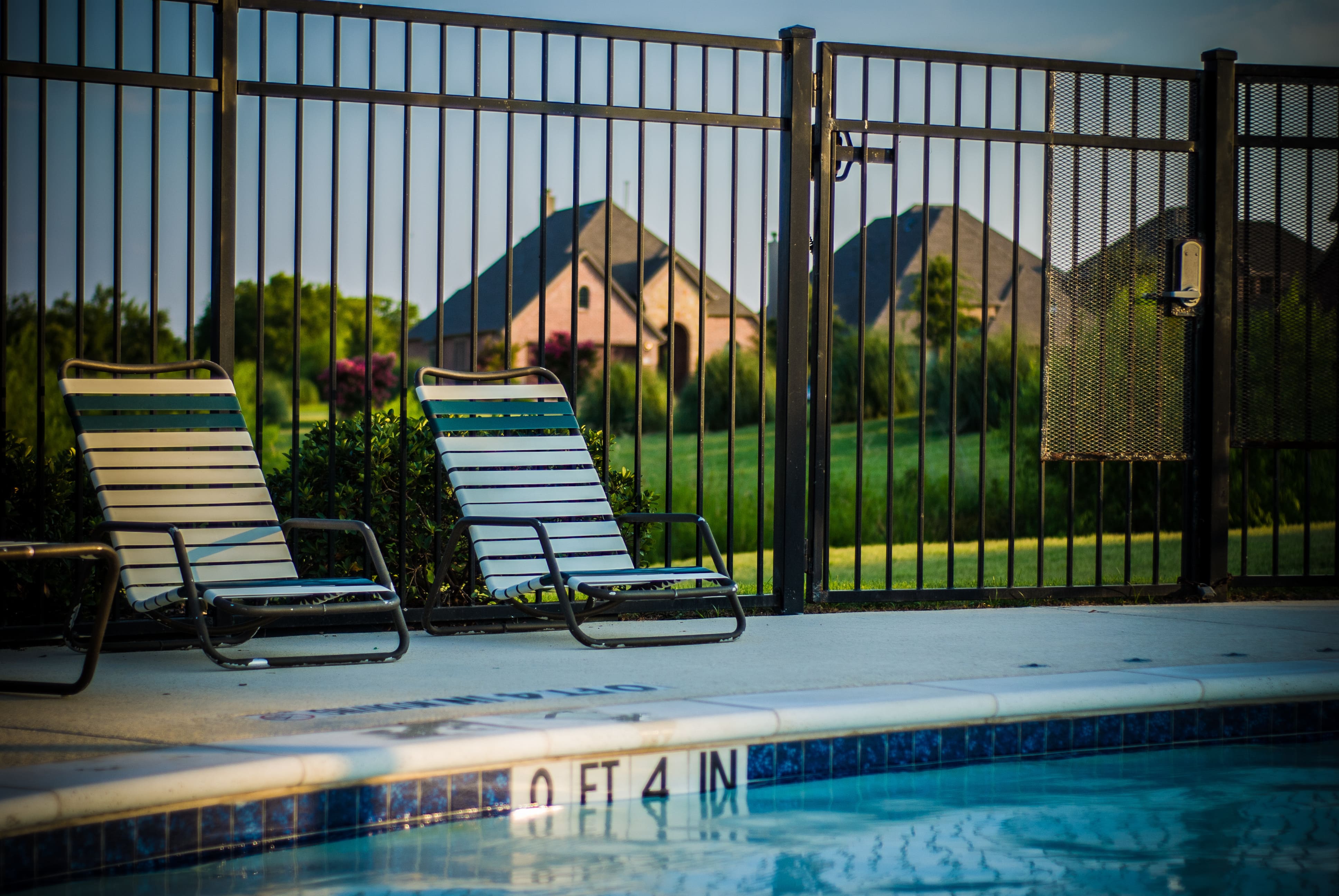
Black aluminum fences are a familiar look when it comes to pools, particularly those that are built inground. They have enough space between the bars to allow for the wind to blow through and are easy to clean and maintain. Aluminum is also a flexible material, and because of this quality aluminum fences are suitable for properties with landscapes that aren’t completely flat. Though the gap between the bars isn’t typically huge, a downfall of this fence type is that the space can be just wide enough for some animals to get through.

Iron fences are similar looking to aluminum fences, and have some similar qualities. Iron fences are strong and long-lasting, and are aesthetically cohesive with a variety of landscapes. Iron fences can rust over time though, which may be a deterrent for those seeking a low-maintenance fence that won’t need updating or replacing down the road.
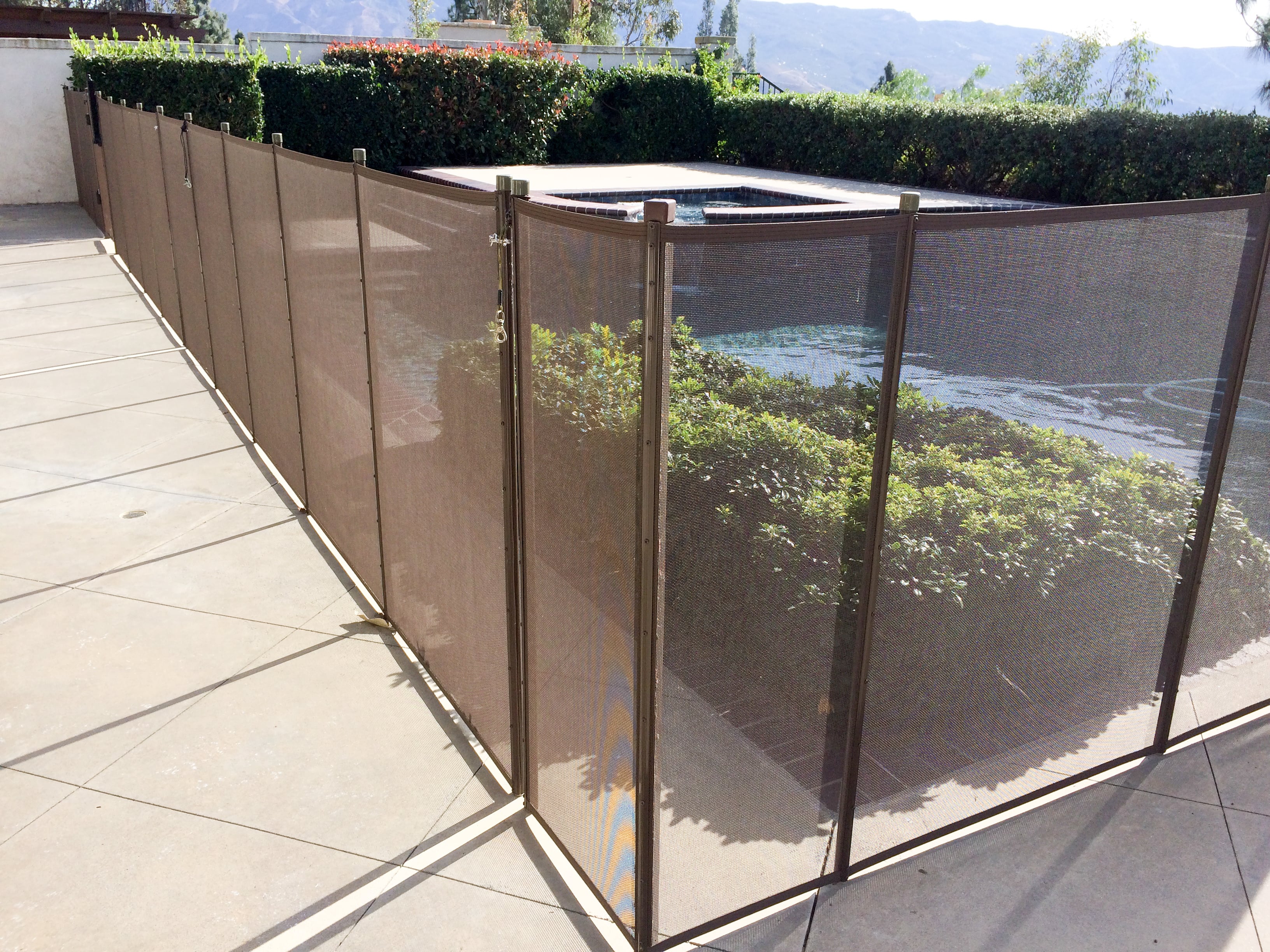
If you want a fence around your pool but don’t want to stare at it for 12 months, a mesh wall could be the solution to your problem. Mesh wall fences are typically removable, which also makes them perfect for backyard pools that only need a section of area protected by a barrier.
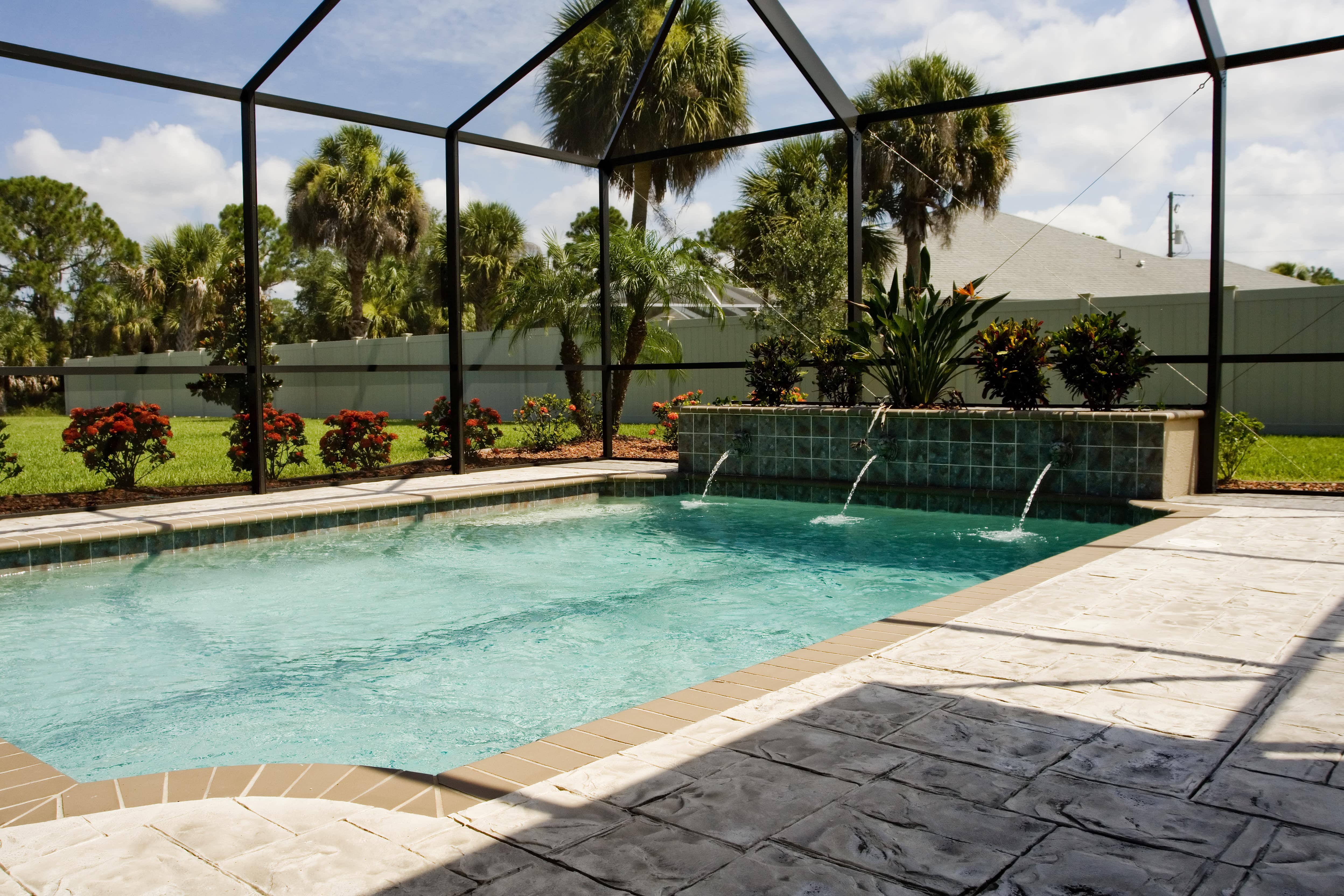
Enclosed screen fences are excellent for keeping your pool in and everything else out. This fence type is the happy medium between an indoor pool and a fully fenced-in outdoor pool, as the enclosed screen acts as a porch-like barrier between your pool and backyard. This is a popular option in warmer weather states where a pool can be kept open for longer than the standard summer months.
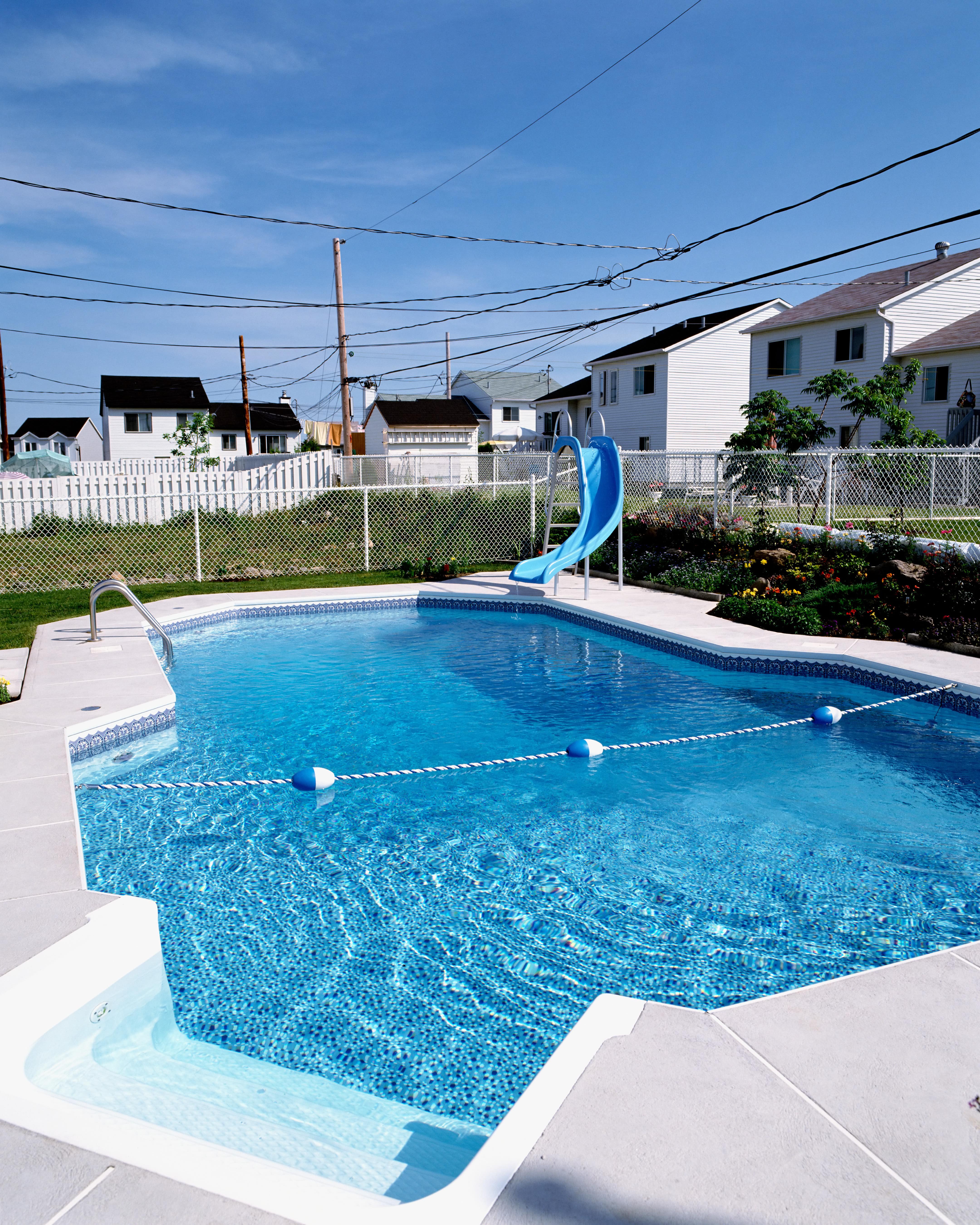
Depending on your neighborhood and state, you might not have the space or permission to build up a tall pool fence. If that sounds like your backyard, a chain-link fence is a tried-and-true option to protect your pool from curious animals and to keep children at a safe distance. If you’re not in love with the typical gray metal color, upgrade to a black chain-link fence for a sleeker look.
From average costs to expert advice, get all the answers you need to get your job done.

Explore the key factors that impact vinyl fence installation costs in Columbus, OH, including labor, materials, permits, layout, design, and yard conditions.

The cost to install a picket fence varies by height, material, labor, and more. Read this guide to help you budget for a picket fence installation.

A fence can be a beautiful and functional addition to your property. Learn all the factors that determine your fence installation costs in Columbus, OH.

If you’re considering building a beautiful new wood fence at your home, you’re likely asking yourself: how long does a wood fence last? We’ve got you covered.

The best wood for fencing is also the most durable—and beautiful. Our guide breaks down the top picks for your wood fence project.
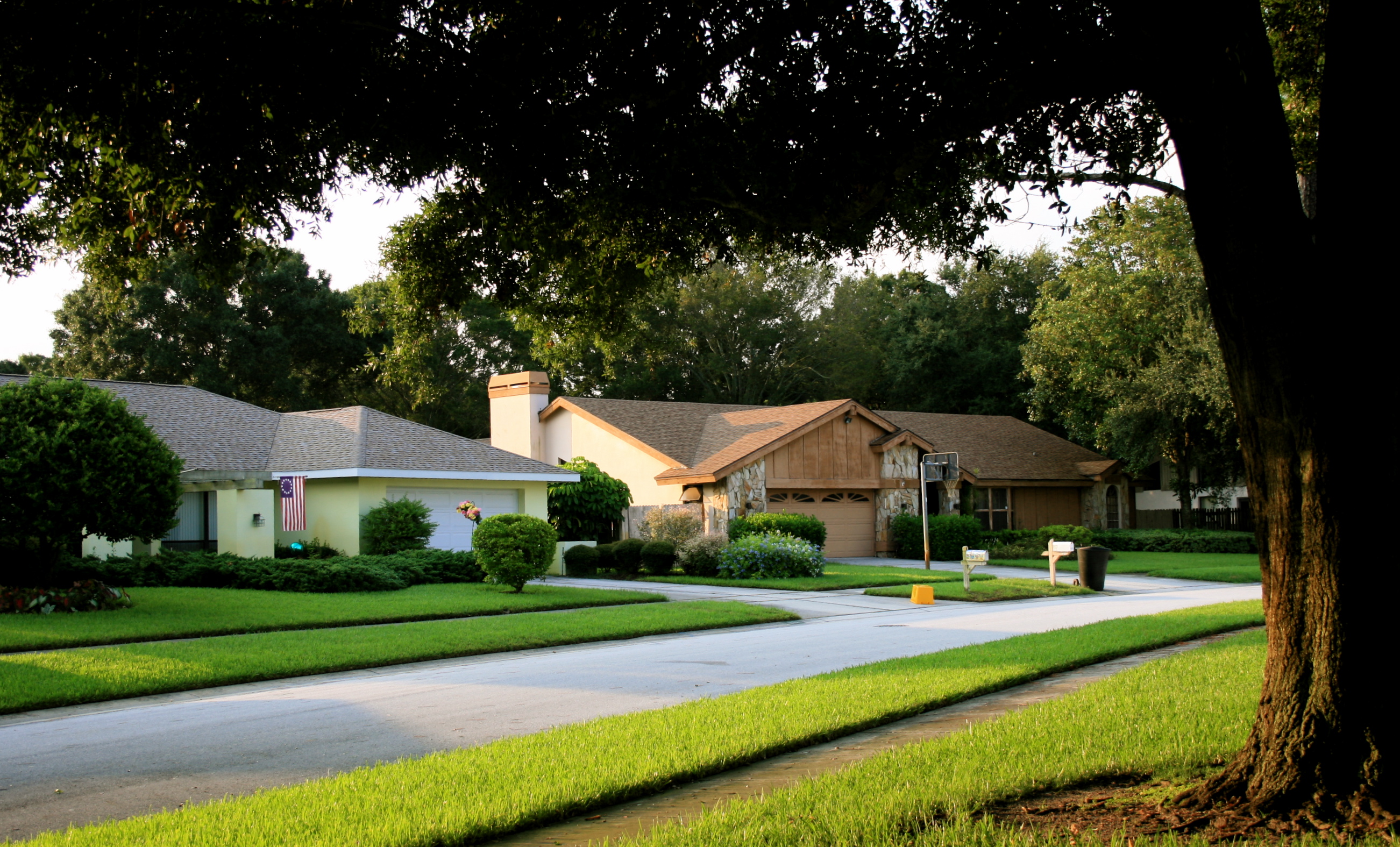
Get the facts on the cost of invisible fence repair, including average prices, key cost factors, and tips to save. Learn what impacts your repair estimate and how to budget.